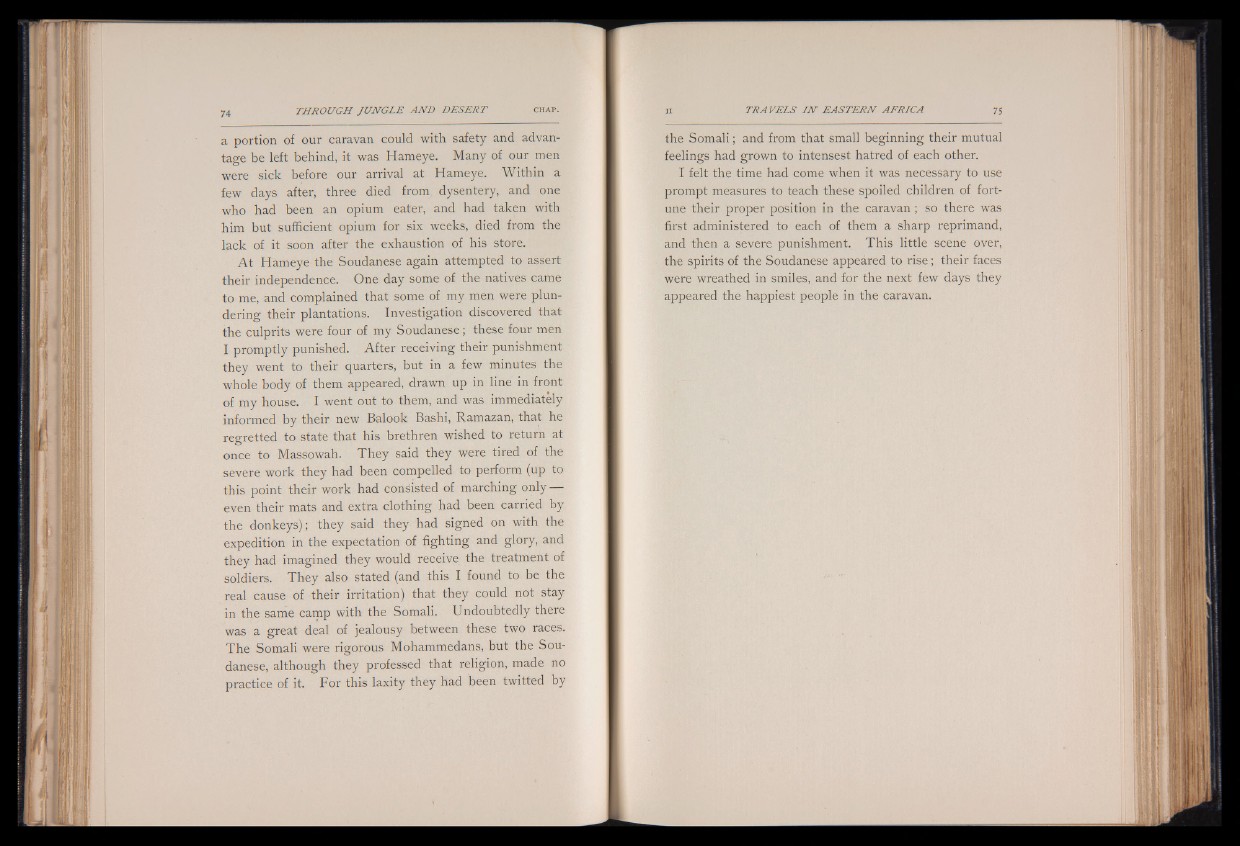
a portion of our caravan could with safety and advantage
be left behind, it was Hameye. Many of our men
were sick before our arrival at Hameye. Within a
few days after, three died from dysentery, and one
who had been an opium eater, and had taken with
him but sufficient opium for six weeks, died from the
lack of it soon after the exhaustion of his store.
A t Hameye the Soudanese again attempted to assert
their independence. One day some of the natives came
to me, and complained that some of my men were plundering
their plantations. Investigation discovered that
the culprits were four of my Soudanese; these four men
I promptly punished. After receiving their punishment
they went to their quarters, but in a few minutes the
whole body of them appeared, drawn up in line in front
of my house. I went out to them, and was immediately
informed by their new Balook Bashi, Ramazan, that he
regretted to state that his brethren wished to return at
once to Massowah. They said they were tired of the
severe work they had been compelled to perform (up to
this point their work had consisted of marching only —
even their mats and extra clothing had been carried by
the donkeys); they said they had signed on with the
expedition in the expectation of fighting and glory, and
they had imagined they would receive the treatment of
soldiers. They also stated (and this I found to be the
real cause of their irritation) that they could not stay
in the same camp with the Somali. Undoubtedly there
was a great deal of jealousy between these two races.
The Somali were rigorous Mohammedans, but the Soudanese,
although they professed that religion, made no
practice of it. For this laxity they had been twitted by
the Somali; and from that small beginning their mutual
feelings had grown to intensest hatred of each other.
I felt the time had come when it was necessary to use
prompt measures to teach these spoiled children of fortune
their proper position in the caravan ; so there was
first administered to each of them a sharp reprimand,
and then a severe punishment. This little scene over,
the spirits of the Soudanese appeared to rise; their faces
were wreathed in smiles, and for the next few days they
appeared the happiest people in the caravan.